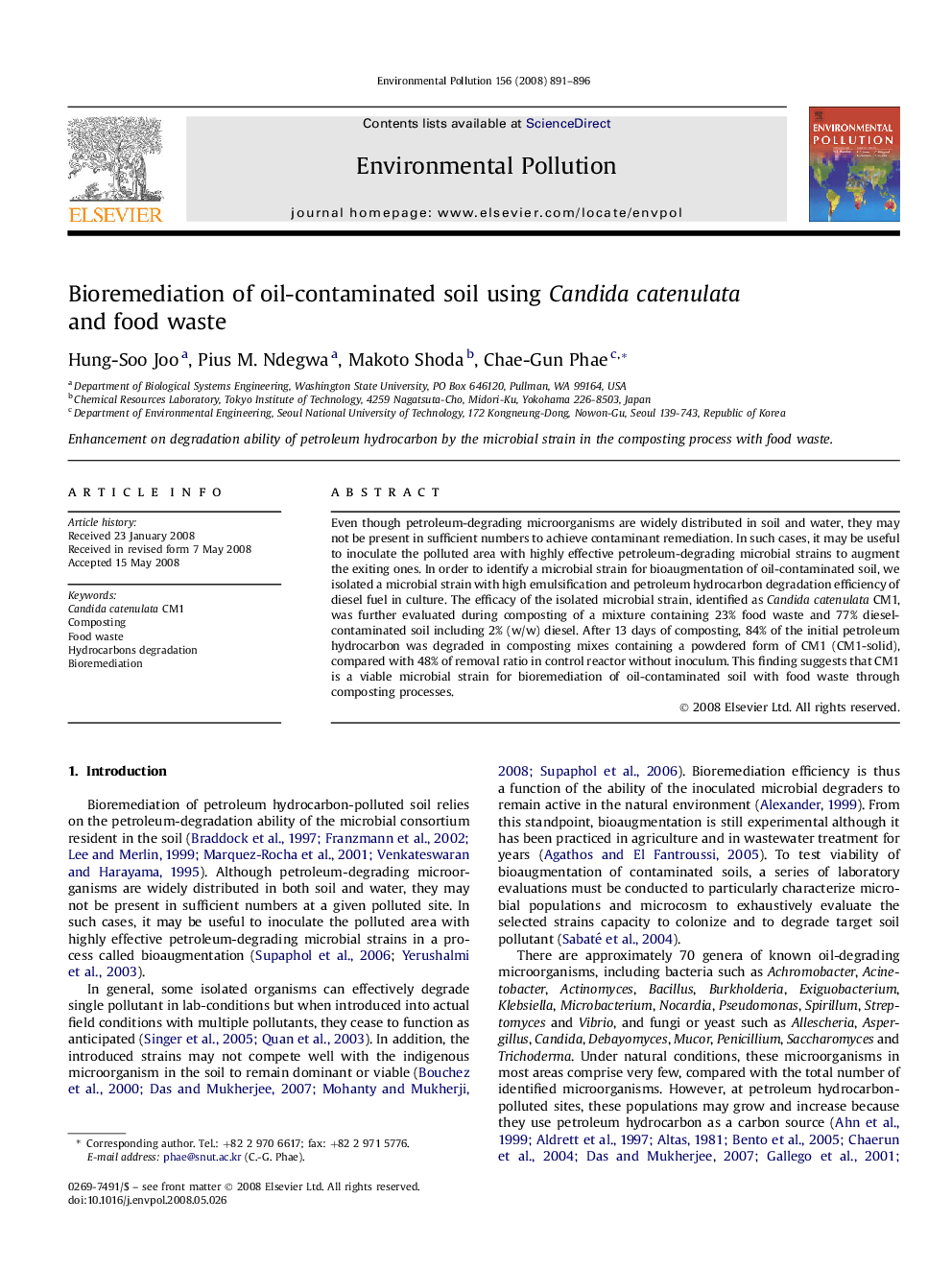| Article ID | Journal | Published Year | Pages | File Type |
|---|---|---|---|---|
| 4426225 | Environmental Pollution | 2008 | 6 Pages |
Even though petroleum-degrading microorganisms are widely distributed in soil and water, they may not be present in sufficient numbers to achieve contaminant remediation. In such cases, it may be useful to inoculate the polluted area with highly effective petroleum-degrading microbial strains to augment the exiting ones. In order to identify a microbial strain for bioaugmentation of oil-contaminated soil, we isolated a microbial strain with high emulsification and petroleum hydrocarbon degradation efficiency of diesel fuel in culture. The efficacy of the isolated microbial strain, identified as Candida catenulata CM1, was further evaluated during composting of a mixture containing 23% food waste and 77% diesel-contaminated soil including 2% (w/w) diesel. After 13 days of composting, 84% of the initial petroleum hydrocarbon was degraded in composting mixes containing a powdered form of CM1 (CM1-solid), compared with 48% of removal ratio in control reactor without inoculum. This finding suggests that CM1 is a viable microbial strain for bioremediation of oil-contaminated soil with food waste through composting processes.
